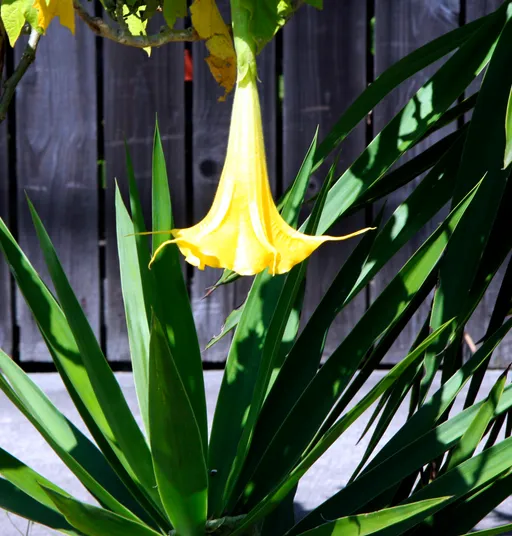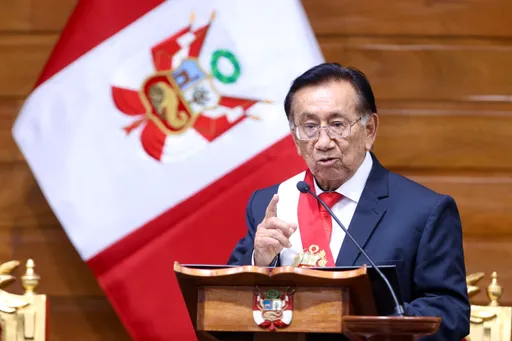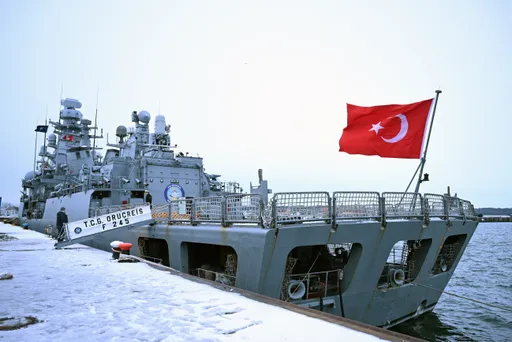In April, the Libyan civil war evolved into another violent phase as the country’s strongman, Khalifa Haftar — who some say wants to be the next Gaddafi — attacked the capital Tripoli in an attempt to unseat the UN-recognised Government of the National Accord (GNA).
The most recent offensive launched in April by his Libyan National Army forces left more than 1,000 fighters dead on both sides, forcing more than 120,000 people to flee their homes to safe areas, according to World Health Organisation.
But as of September, when Haftar’s assault showed signs of losing its momentum, Russia apparently introduced hundreds of mercenaries to support Haftar, who are reported to have been recruited by Moscow’s Wagner Group.
Some Western officials even think that the number of mercenaries could be in the thousands, but Moscow denies having any there at all.
The situation has strong parallels to when Syrian regime leader Bashar al Assad was on the brink of collapse in September 2015, when opposition forces were marching against the regime forces from all corners of the country. However, Russia stepped in and changed both the political and military equation in favour of the Assad regime after its intervention in September 2015.
Some experts think that Libya could be the next example of Russian assertiveness across the Middle East and North Africa following Syria.
Russian mercenaries, including snipers, who have been equipped with missiles and other modern weaponry, have recently been moving into the war’s front lines in Tripoli from their bases in the eastern part of the country, according to both Libyan and Western sources.
A surreal strongman finding so much support
Haftar, a former general under the country’s long-standing dictator, Moammar Qaddafi, emerged in the Libyan battlefield during the civil war after living in exile in the US for more than a decade, serving the CIA for several years.
Since the fall of Gaddafi, who was overthrown by opposition groups in October 2011 during the Arab Spring rebellions, Libya has become a ground for foreign powers’ competing political agendas.
Haftar, 75, whose forces compose militias from eastern Libya, has been supported by Russia, France, Saudi Arabia, UAE and Egypt, while the Tripoli-based government, which has been supported by militias from the western part of the country, is mainly backed by Turkey, Qatar and partly Italy and some other European nations.
The US, where Haftar is a citizen, officially supports the Tripoli government without making any real commitment to it. But the official line has been blurred after President Donald Trump praised Haftar in a telephone call in April.
For Haftar and his allies, taking over the capital is akin to capturing the biggest prize in the civil war because the country’s oil revenues, the main source of Libya’s wealth, are collected by Tripoli, which uses them to pay salaries of public servants.
A Russian-backed offensive has the potential to pit several nations on a collision course with each other through a proxy clash, and will muddy the politics surrounding the conflict. A commander of the GNA forces echoes the sentiment that people are sick of the fighting and want a political resolution to the impasse.
“It is very clear that Russia is going all in on this conflict,” Osama al Juwaili, the leading commander of the GNA forces, told the New York Times. Juwaili believes that inefficient Western support could further embolden Haftar to escalate the conflict against the Tripoli-based government.
In Syria, like in Libya, Western countries also left opposition forces to the mercy of the Assad regime backed by Moscow and Tehran’s Shiite militias, essentially paving the way for an eventual military victory for Damascus.
“Why all this pain?” Juwaili asked.
“Just stop this now and assign the guy [Haftar] to rule us.”
The general’s April attack was largely unexpected. A day after the United Nations Secretary-General Antonio Guterres arrived in Tripoli to wrap up a peace deal, Haftar’s forces attacked the capital, dimming the possibilities of reaching a political compromise among warring parties.
Drone warfare
Since Haftar’s April attack, one of the new features of the civil war has become the introduction of drones to the warfare by both sides. According to the UN, since April, nearly 1,000 drones have been launched by opposing sides.
Both Haftar and the GNA have been armed with drones. Haftar’s drones have been provided by the UAE and the GNA have received drones from Turkey.
Juwaili, the GNA’s top commander, believes that two thirds of their casualties have been caused by Haftar’s drones, each of which has capacity to fire eight missiles on every mission.
But after buying drones from Ankara, the situation has been partly reversed against Haftar forces, according to the GNA Interior Minister Fathi Bushagha.
“The Turks saved us just in time,” Bushagha said.




























